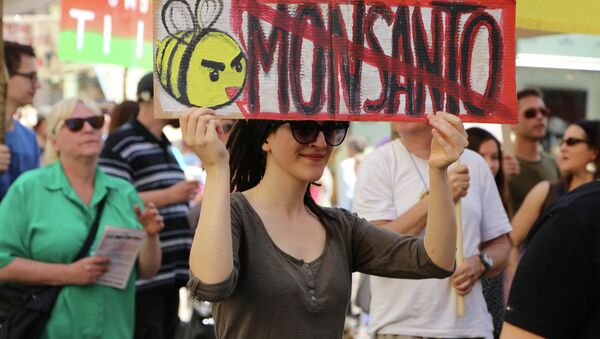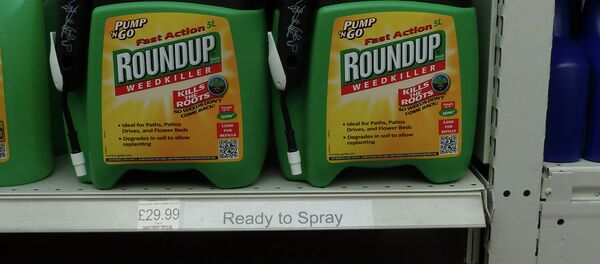The demand follows last month’s report by the World Health Organization, which found that the herbicide glyphosate – the active chemical ingredient in weed killer Roundup – is "probably carcinogenic."
According to Fesprosa, Argentina's union of medical professionals, glyphosate “not only causes cancer, it is also associated with increased spontaneous abortions, birth defects, skin diseases, and respiratory and neurological disease.”
In a statement released earlier this month, the union cited stats from the Physicians Network of Sprayed Peoples (RMPF), which said that each year in Argentina, 108,000 square miles of soil is sprayed with more than 320 million liters of glyphosate, putting 13 million people at risk of being affected.
Fesprosa, which represents more than 30,000 doctors and health specialists in the country, called on the government to ban the chemical from the country.
As an additional measure, agribusinesses should be forced to change their structures in order to be less dependent on chemicals, which would include giving up the use of genetically modified plants, the union said.
Glyphosate is commonly used on crops throughout Latin America, where several countries have formed a widespread campaign against the chemical and other Monsanto products.
Glyphosate was introduced into the region in the 1970s, and its use spread rapidly through Monsanto products. Over the last 22 years, the use of agrochemicals in Argentina has increased by 858%, according to Greenpeace Andino.
Today, there are some 193,000 square miles of genetically modified soy crops in Latin America, where 600 million liters of the chemical are used each year, according to Carlos Vicente, of GRAIN, a non-governmental organization that promotes sustainable agriculture.
Roundup Ready crops are particularly common in Argentina, Bolivia, Brazil, Paraguay, and Uruguay – five countries which are home to a combined 320,000 square miles of genetically modified crops, according to Javier Souza, coordinator of Latin American pesticide action network RAP-AL.
Souza, who is also the head of the Argentine Center for Studies on Appropriate Technologies, has called for an all-out ban of the product in Latin America.
“We advocate a ban on glyphosate which should take effect in the short term with restrictions on purchasing, spraying and packaging,” Souza told telesur.
Greenpeace also demands a ban of the product in Latin America, which it says is “damaging to both the soil and our health.”
“We cannot allow the business interests of a North American multinational to be more important than the health of the people of our region. Governments should promote the technology and practices of organic farming to protect growers, consumers and the environment,” Franco Segesso, coordinator of the campaign at Greenpeace Andino, told telesur.




